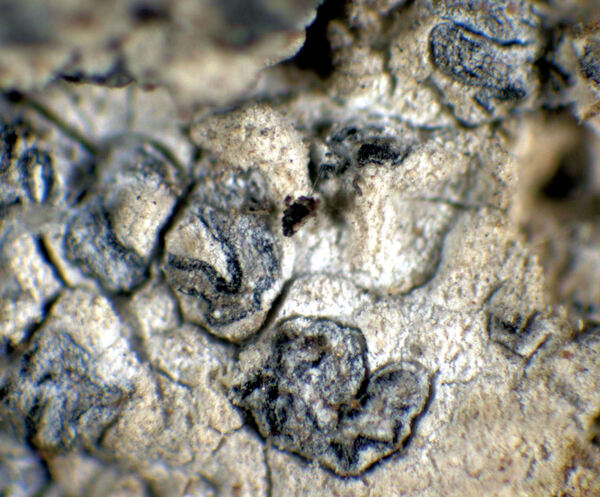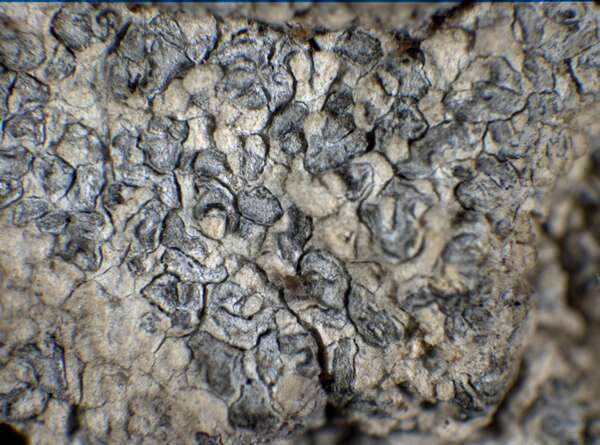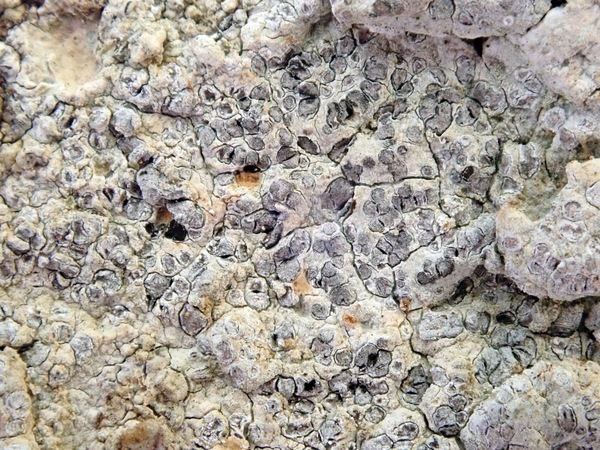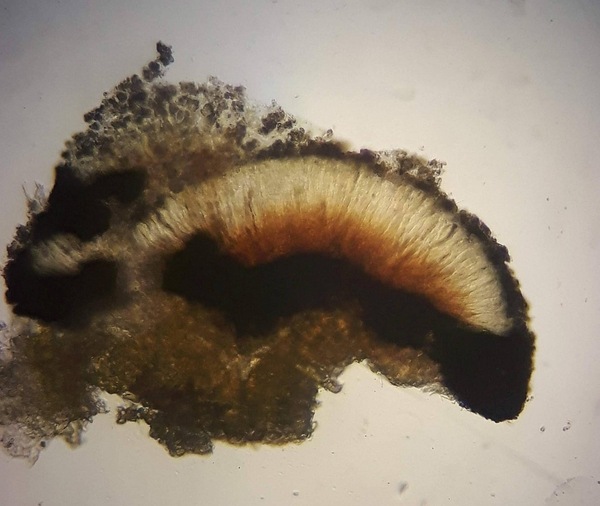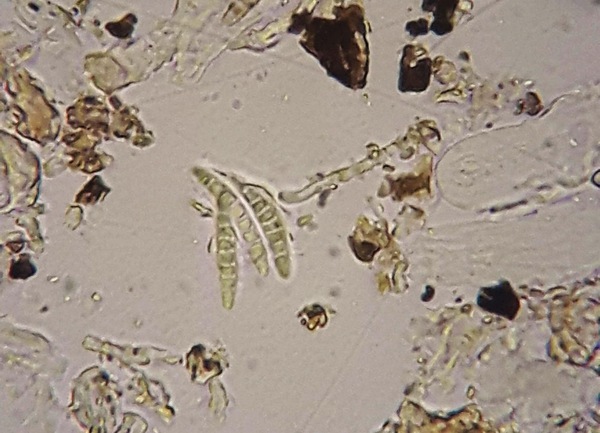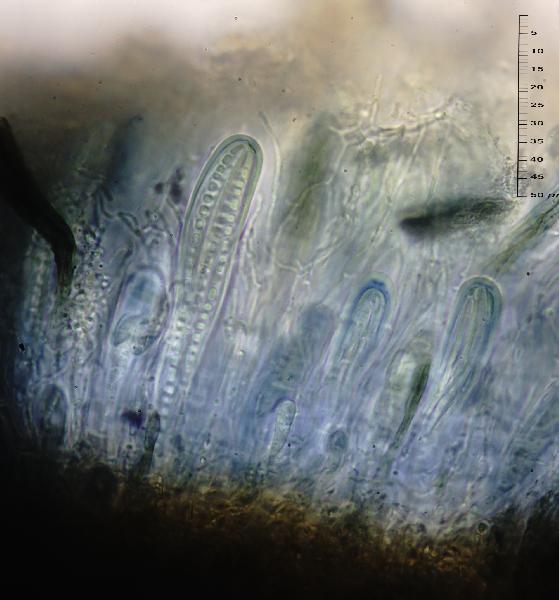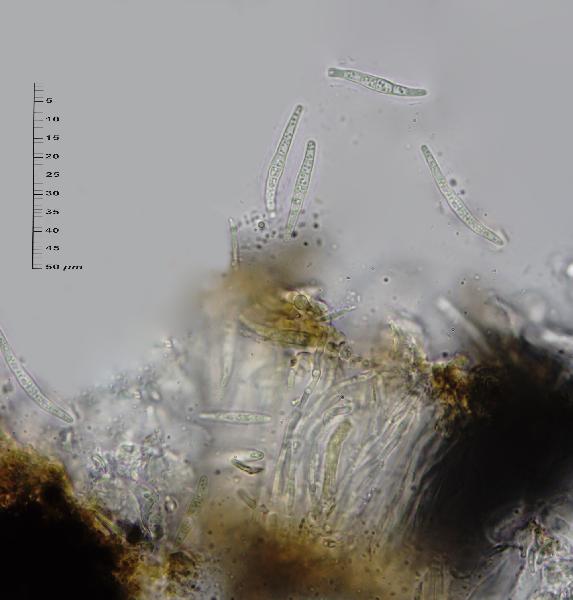Lecanographa lyncea (Sm.) Egea & Torrente
Bibl. Lichenol., 54: 142, 1994. Basionym: Lichen lynceus Sm. in Smith & Sowerby - Engl. Bot., 12: 809, 1801.
Synonyms: Lecanactis emersa (Müll. Arg.) Stizenb.; Lecanactis lyncea (Sm.) Fr.; Lecanactis plocina (Ach.) A. Massal. non auct.; Lecanactis stictica Durieu & Mont.; Opegrapha caesia Ach. non DC.; Opegrapha emersa Müll. Arg.; Opegrapha lyncea (Sm.) Hook.; Opegrapha stictica (Durieu & Mont.) Nyl.; Opegrapha vestita Müll. Arg.
Description: Thallus crustose, episubstratic, rather thick, continuous to rimose, ecorticate, chalky white to yellowish white, somewhat pulverulent, sometimes sterile and with numerous, evenly scattered, pale brown granular flecks. Apothecia black, subimmersed in the thallus, rarely adnate, very variable in form, round and 0.3-0.7 mm across, or lirelliform, broadly or narrowly oblong, 0.3-1 x 0.3-0.5 mm, simple or slightly branched, straight or curved, with a black, expanded, flat to slightly convex, often blue-grey-pruinose disc, and a usually undulating, scarcely raised, finally often excluded proper margin. Proper exciple black, carbonized, at maturity extending below the hymenium, K+ dark green; pseudothecium pale brown, 15-25 µm thick; hymenium colourless, 60-90 µm high, I+ pale red, K/I+ blue; paraphysoids richly branched and anastomosing, up to 1.5 µm thick, the apical cells not or only slightly swollen; subhymenium brown, 20-35 µm high, I+ pale blue; hypothecium black. Asci 8-spored, narrowly clavate to cylindrical, fissitunicate, the apex with a narrow, K/I± pale blue apical dome penetrated by a small ocular chamber surrounded by a small, K/I+ dark blue, ring-like zone (Grumulosa-type of Egea & Torrente 1994). Ascospores (6-)8-9(-12)-septate, hyaline (overmature spores brown), narrowly fusiform, (17-)23-35(-41) x 3-4.5 µm, the wall thin, not swollen at septa, surrounded by a gelatinous sheath. Pycnidia black, immersed, subglobose. Conidia straight, bacilliform, 4-6 x c. 1 µm. Photobiont trentepohlioid. Spot tests: thallus K-, C-, KC-, P-, UV+ white, K/UV+ mauve. Chemistry: confluentic and 2’-0-methylmicrophyllinic acids.
Growth form: Crustose
Substrata: bark
Photobiont: Trentepohlia
Reproductive strategy: mainly sexual
Most common in areas with a humid-warm climate (e.g. most of Tyrrenian Italy)
Commonnes-rarity: (info)
Alpine belt: absent
Subalpine belt: absent
Montane belt: absent
Dry submediterranean belt: extremely rare
Humid submediterranean belt: very rare
Padanian area: absent
pH of the substrata:
1 2 3 4 5
Solar irradiation:
1 2 3 4 5
Aridity:
1 2 3 4 5
Eutrophication:
1 2 3 4 5
Poleotolerance:
0 1 2 3
Altitudinal distribution:
1 2 3 4 5 6
Rarity
absent
extremely rare
very rare
rare
rather rare
rather common
common
very common
extremely common
Loading data...
Occurrence data
Predictive map
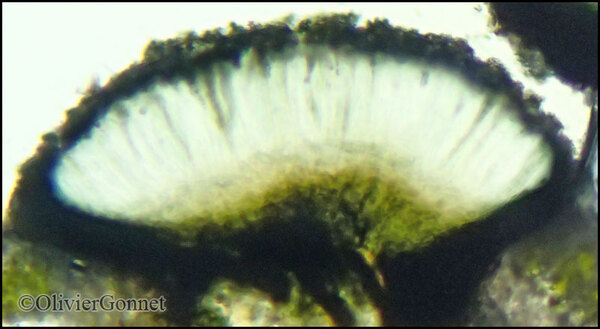
courtesy Olivier Gonnet - Source: https://www.afl-lichenologie.fr/Photos_AFL/Photos_AFL_L/Texte_L_2/Lecanographa_lyncea.htm
France, session AFL 2015 dans le Lot
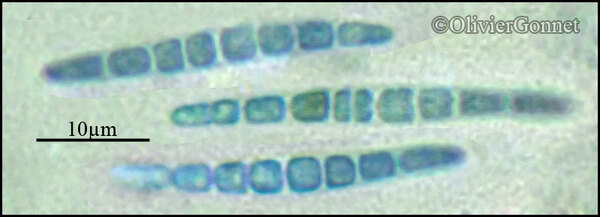
courtesy of Olivier Gonnet - Source: https://www.afl-lichenologie.fr/Photos_AFL/Photos_AFL_L/Texte_L_2/Lecanographa_lyncea.htm
France, session AFL 2015 dans le Lot
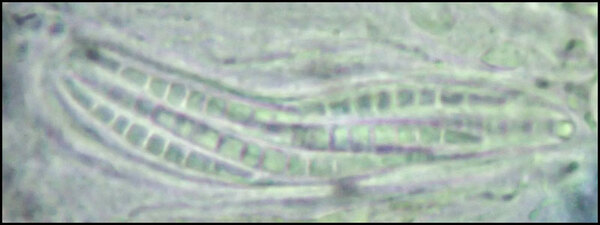
courtesy of Olivier Gonnet - Source: https://www.afl-lichenologie.fr/Photos_AFL/Photos_AFL_L/Texte_L_2/Lecanographa_lyncea.htm
France, session AFL 2015 dans le Lot
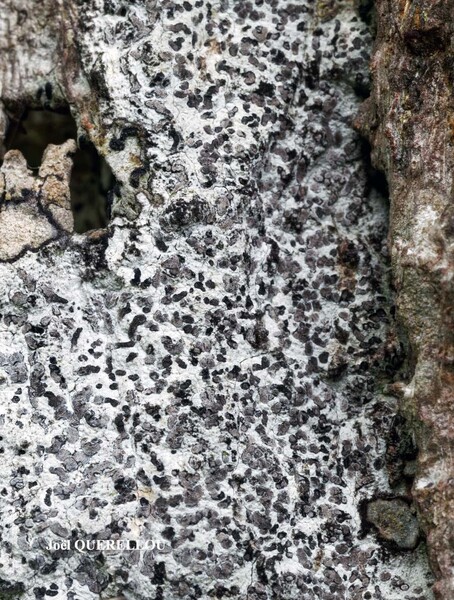
Joël Querellou - Source: http://www.lichensmaritimes.org/index.php?task=fiche&lichen=677&lang=en
France, Plougastel Daoulas
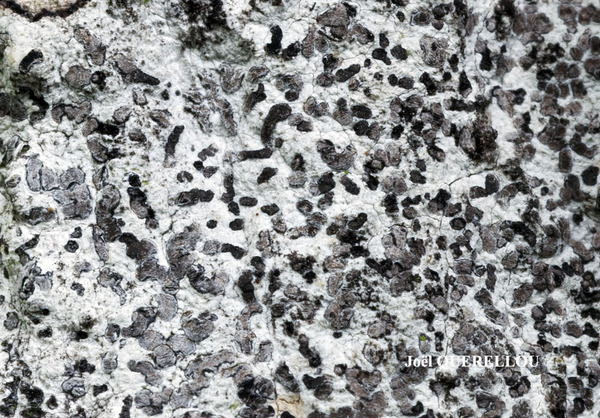
Joël Querellou - Source: http://www.lichensmaritimes.org/index.php?task=fiche&lichen=677&lang=en
France, Plougastel Daoulas
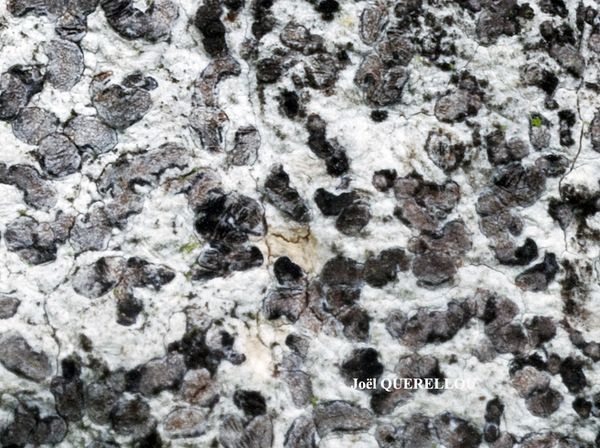
Joël Querellou - Source: http://www.lichensmaritimes.org/index.php?task=fiche&lichen=677&lang=en
France, Plougastel Daoulas
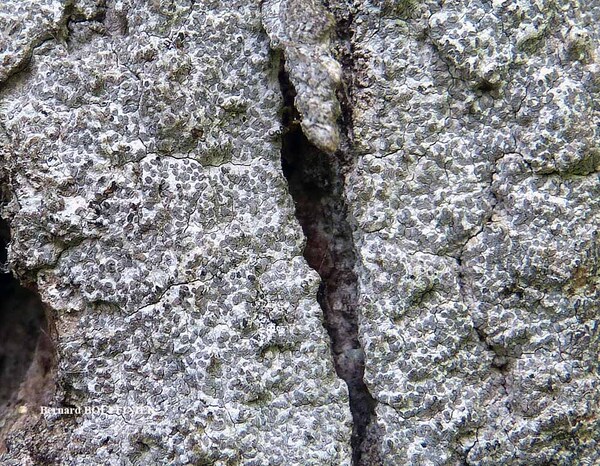
Bernard Bouffinier - Source: http://www.lichensmaritimes.org/index.php?task=fiche&lichen=677&lang=en
France, Canal Châteaulin
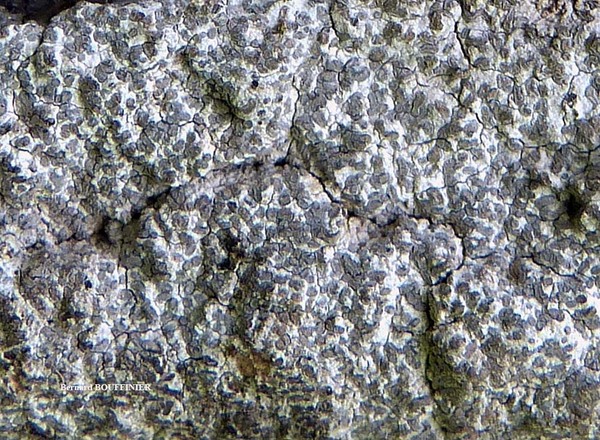
Bernard Bouffinier - Source: http://www.lichensmaritimes.org/index.php?task=fiche&lichen=677&lang=en
France, Canal Châteaulin
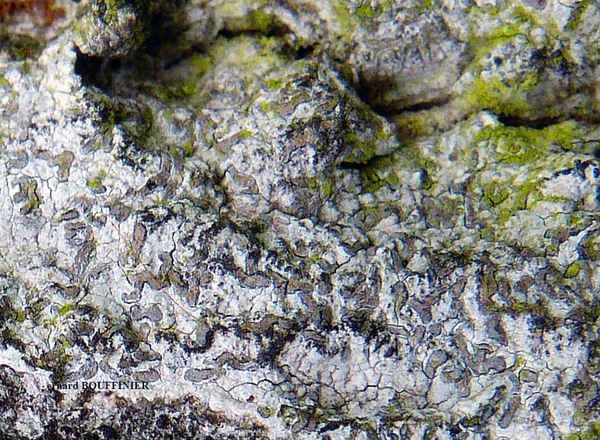
Bernard Bouffinier - Source: http://www.lichensmaritimes.org/index.php?task=fiche&lichen=677&lang=en
France, Canal Châteaulin
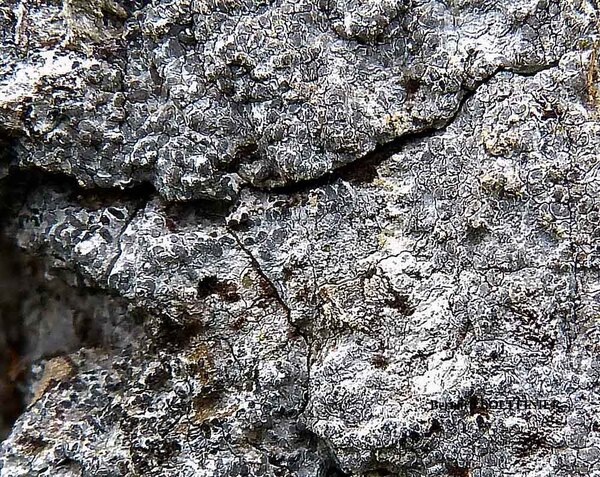
Bernard Bouffinier - Source: http://www.lichensmaritimes.org/index.php?task=fiche&lichen=677&lang=en
France, St. Sebastien
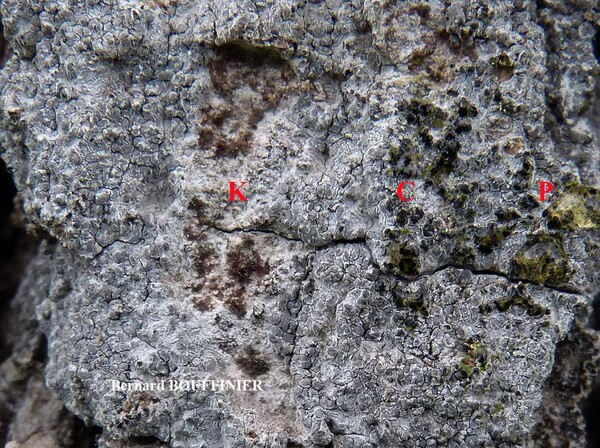
Bernard Bouffinier - Source: http://www.lichensmaritimes.org/index.php?task=fiche&lichen=677&lang=en
France, St. Sebastien
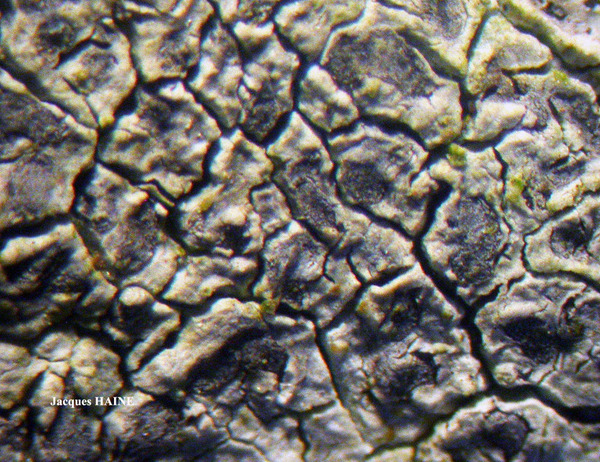
Jacques Haine - Source: http://www.lichensmaritimes.org/index.php?task=fiche&lichen=677&lang=en
France, Kergoat
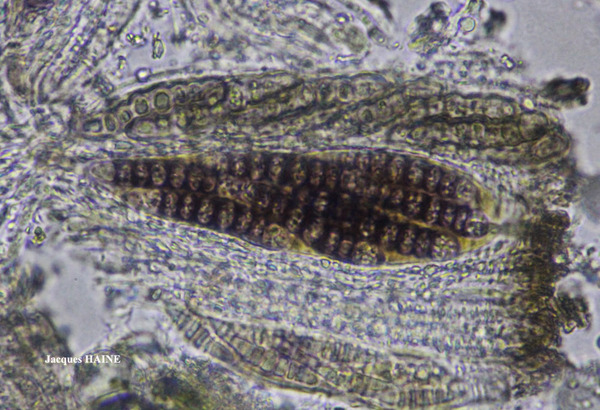
Jacques Haine - Source: http://www.lichensmaritimes.org/index.php?task=fiche&lichen=677&lang=en
France, Kergoat
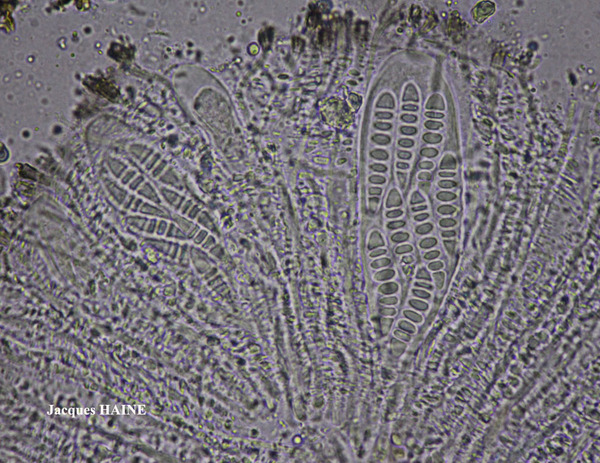
Jacques Haine - Source: http://www.lichensmaritimes.org/index.php?task=fiche&lichen=677&lang=en
France, Kergoat
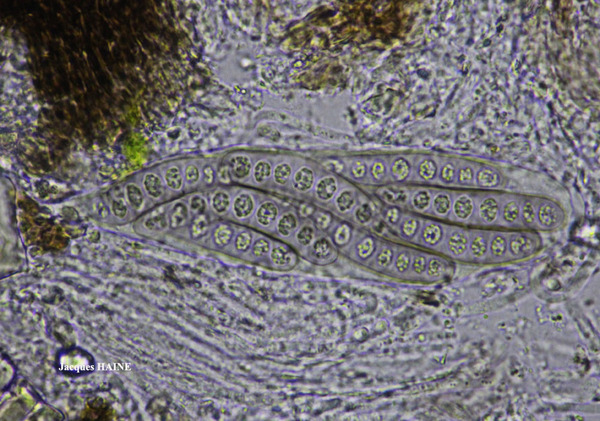
Jacques Haine - Source: http://www.lichensmaritimes.org/index.php?task=fiche&lichen=677&lang=en
France, Kergoat

Jacques Haine - Source: http://www.lichensmaritimes.org/index.php?task=fiche&lichen=677&lang=en
France, Kergoat
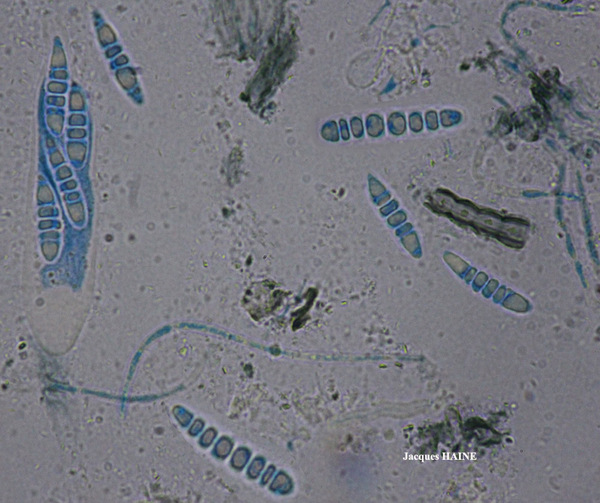
Jacques Haine - Source: http://www.lichensmaritimes.org/index.php?task=fiche&lichen=677&lang=en
France, Kergoat
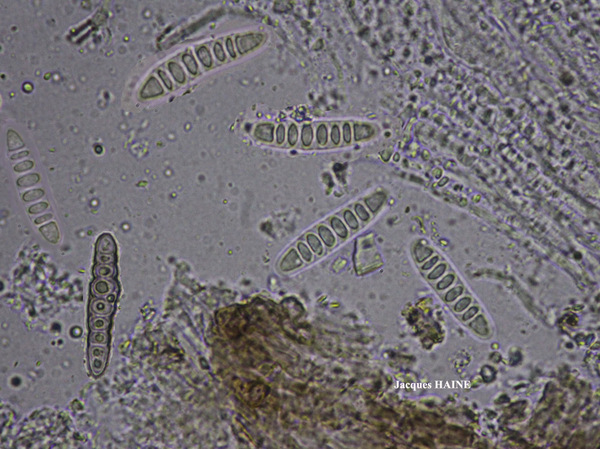
Jacques Haine - Source: http://www.lichensmaritimes.org/index.php?task=fiche&lichen=677&lang=en
France, Kergoat
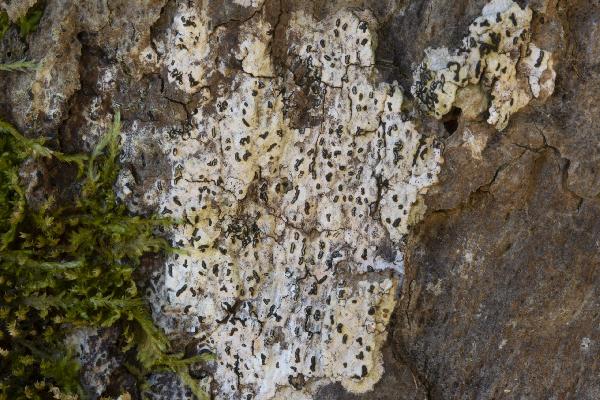
Marta Gonzalez Garcia - Centro de Estudios Micologicos Asturianos
Spain, Jardín Botánico Atlántico de Gijón (Asturias), 29-IV-2022, epifita
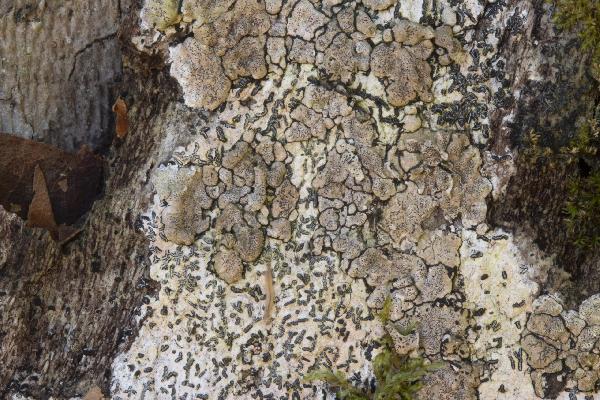
Marta Gonzalez Garcia - Centro de Estudios Micologicos Asturianos
Spain, Jardín Botánico Atlántico de Gijón (Asturias), 29-IV-2022, epifita
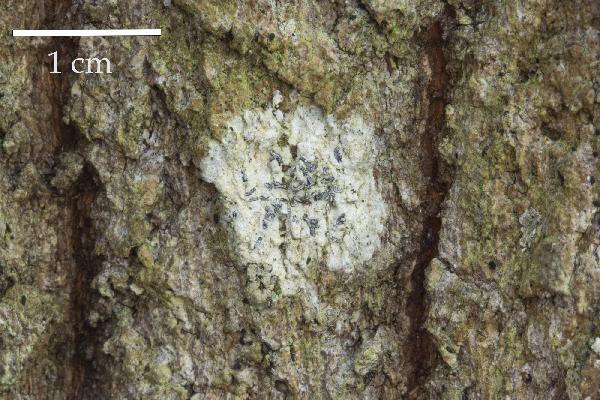
Marta Gonzalez Garcia - Centro de Estudios Micologicos Asturianos
Spain, Jardín Botánico Atlántico de Gijón (Asturias), 29-IV-2022, epifita
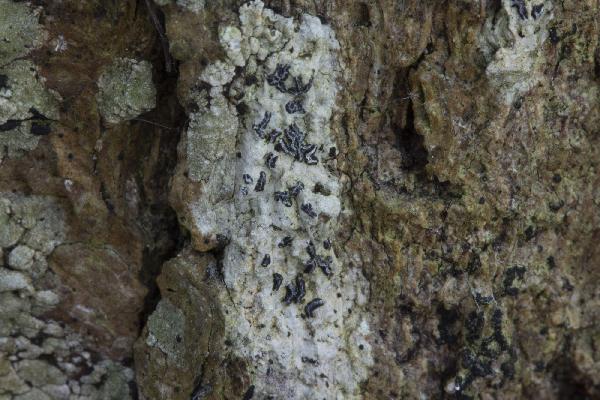
Marta Gonzalez Garcia - Centro de Estudios Micologicos Asturianos
Spain, Jardín Botánico Atlántico de Gijón (Asturias), 29-IV-2022, epifita
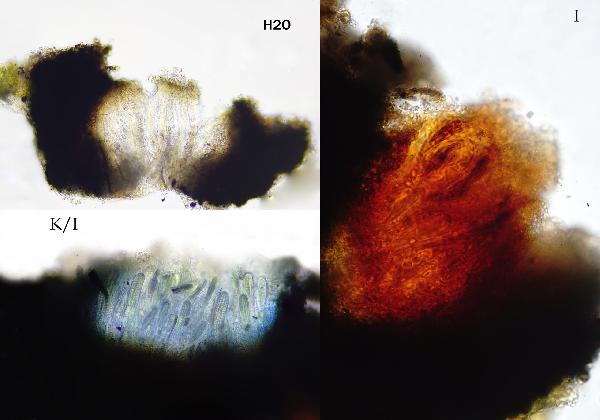
Marta Gonzalez Garcia - Centro de Estudios Micologicos Asturianos
Spain, Jardín Botánico Atlántico de Gijón (Asturias), 29-IV-2022, epifita
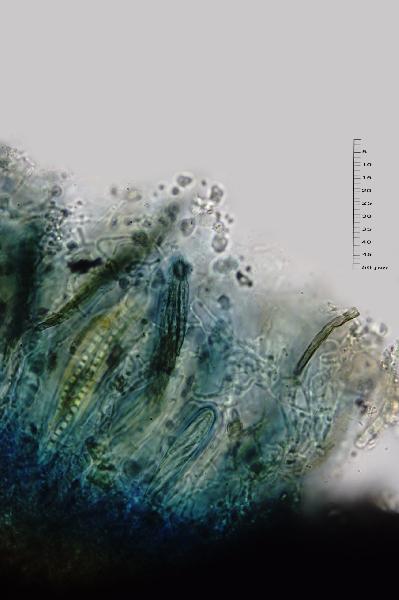
Marta Gonzalez Garcia - Centro de Estudios Micologicos Asturianos
Spain, Jardín Botánico Atlántico de Gijón (Asturias), 29-IV-2022, epifita
Growth form: Crustose
Substrata: bark
Photobiont: Trentepohlia
Reproductive strategy: mainly sexual
Most common in areas with a humid-warm climate (e.g. most of Tyrrenian Italy)
Commonnes-rarity: (info)
Alpine belt: absent
Subalpine belt: absent
Montane belt: absent
Dry submediterranean belt: extremely rare
Humid submediterranean belt: very rare
Padanian area: absent
pH of the substrata:
| 1 | 2 | 3 | 4 | 5 |
Solar irradiation:
| 1 | 2 | 3 | 4 | 5 |
Aridity:
| 1 | 2 | 3 | 4 | 5 |
Eutrophication:
| 1 | 2 | 3 | 4 | 5 |
Poleotolerance:
| 0 | 1 | 2 | 3 |
Altitudinal distribution:
| 1 | 2 | 3 | 4 | 5 | 6 |
Rarity
absent
extremely rare
very rare
rare
rather rare
rather common
common
very common
extremely common
Loading data...
Occurrence data
Predictive map

courtesy Olivier Gonnet - Source: https://www.afl-lichenologie.fr/Photos_AFL/Photos_AFL_L/Texte_L_2/Lecanographa_lyncea.htm
France, session AFL 2015 dans le Lot

courtesy of Olivier Gonnet - Source: https://www.afl-lichenologie.fr/Photos_AFL/Photos_AFL_L/Texte_L_2/Lecanographa_lyncea.htm
France, session AFL 2015 dans le Lot

courtesy of Olivier Gonnet - Source: https://www.afl-lichenologie.fr/Photos_AFL/Photos_AFL_L/Texte_L_2/Lecanographa_lyncea.htm
France, session AFL 2015 dans le Lot

Joël Querellou - Source: http://www.lichensmaritimes.org/index.php?task=fiche&lichen=677&lang=en
France, Plougastel Daoulas

Joël Querellou - Source: http://www.lichensmaritimes.org/index.php?task=fiche&lichen=677&lang=en
France, Plougastel Daoulas

Joël Querellou - Source: http://www.lichensmaritimes.org/index.php?task=fiche&lichen=677&lang=en
France, Plougastel Daoulas

Bernard Bouffinier - Source: http://www.lichensmaritimes.org/index.php?task=fiche&lichen=677&lang=en
France, Canal Châteaulin

Bernard Bouffinier - Source: http://www.lichensmaritimes.org/index.php?task=fiche&lichen=677&lang=en
France, Canal Châteaulin

Bernard Bouffinier - Source: http://www.lichensmaritimes.org/index.php?task=fiche&lichen=677&lang=en
France, Canal Châteaulin

Bernard Bouffinier - Source: http://www.lichensmaritimes.org/index.php?task=fiche&lichen=677&lang=en
France, St. Sebastien

Bernard Bouffinier - Source: http://www.lichensmaritimes.org/index.php?task=fiche&lichen=677&lang=en
France, St. Sebastien

Jacques Haine - Source: http://www.lichensmaritimes.org/index.php?task=fiche&lichen=677&lang=en
France, Kergoat

Jacques Haine - Source: http://www.lichensmaritimes.org/index.php?task=fiche&lichen=677&lang=en
France, Kergoat

Jacques Haine - Source: http://www.lichensmaritimes.org/index.php?task=fiche&lichen=677&lang=en
France, Kergoat

Jacques Haine - Source: http://www.lichensmaritimes.org/index.php?task=fiche&lichen=677&lang=en
France, Kergoat

Jacques Haine - Source: http://www.lichensmaritimes.org/index.php?task=fiche&lichen=677&lang=en
France, Kergoat

Jacques Haine - Source: http://www.lichensmaritimes.org/index.php?task=fiche&lichen=677&lang=en
France, Kergoat

Jacques Haine - Source: http://www.lichensmaritimes.org/index.php?task=fiche&lichen=677&lang=en
France, Kergoat

Marta Gonzalez Garcia - Centro de Estudios Micologicos Asturianos
Spain, Jardín Botánico Atlántico de Gijón (Asturias), 29-IV-2022, epifita

Marta Gonzalez Garcia - Centro de Estudios Micologicos Asturianos
Spain, Jardín Botánico Atlántico de Gijón (Asturias), 29-IV-2022, epifita

Marta Gonzalez Garcia - Centro de Estudios Micologicos Asturianos
Spain, Jardín Botánico Atlántico de Gijón (Asturias), 29-IV-2022, epifita

Marta Gonzalez Garcia - Centro de Estudios Micologicos Asturianos
Spain, Jardín Botánico Atlántico de Gijón (Asturias), 29-IV-2022, epifita

Marta Gonzalez Garcia - Centro de Estudios Micologicos Asturianos
Spain, Jardín Botánico Atlántico de Gijón (Asturias), 29-IV-2022, epifita



